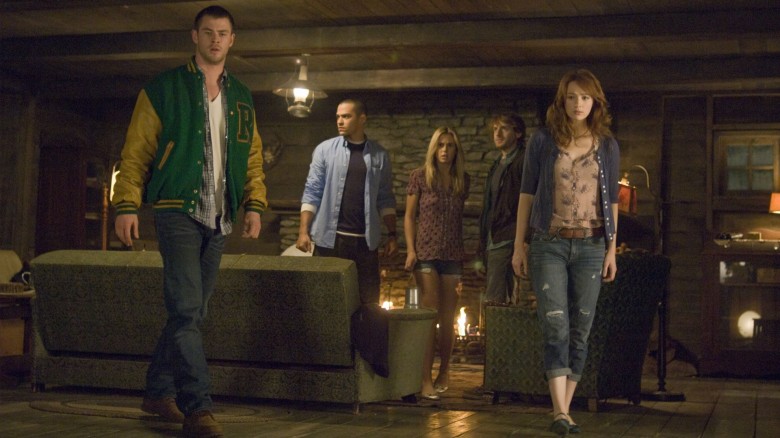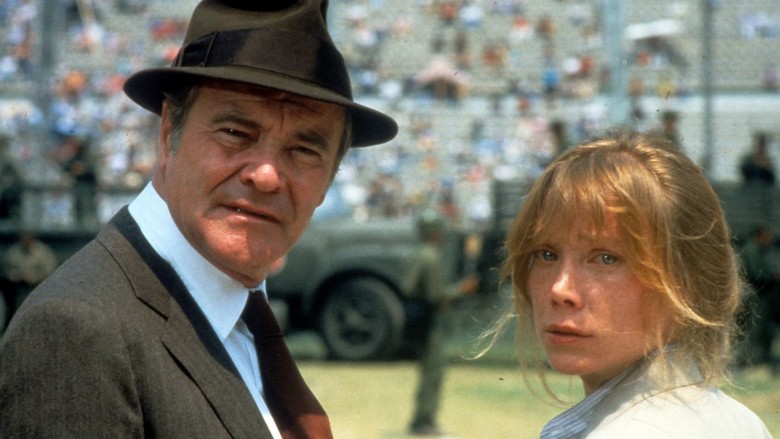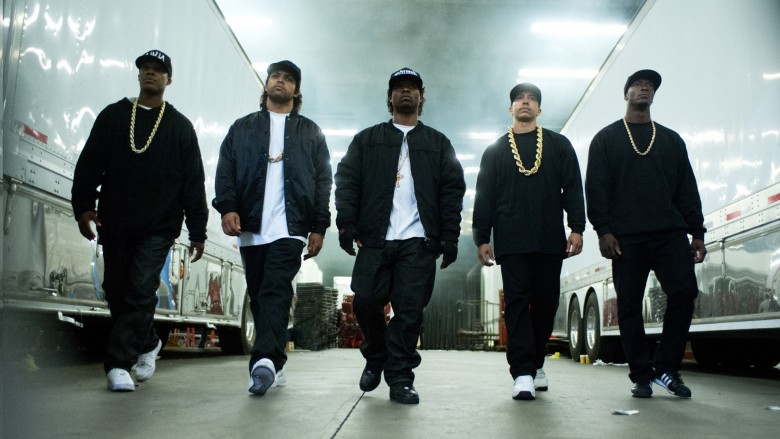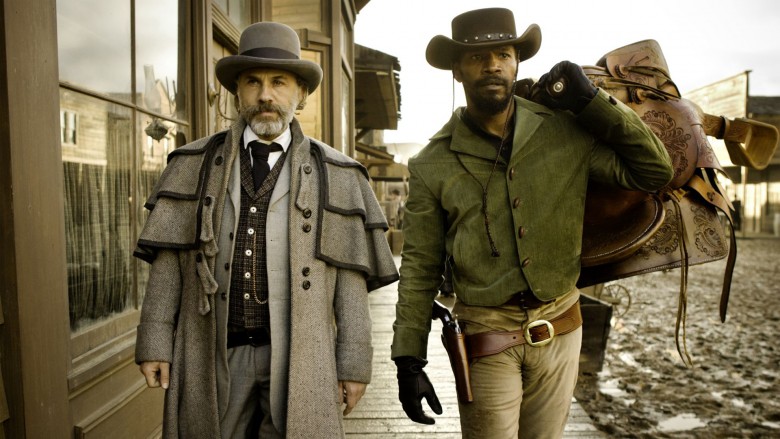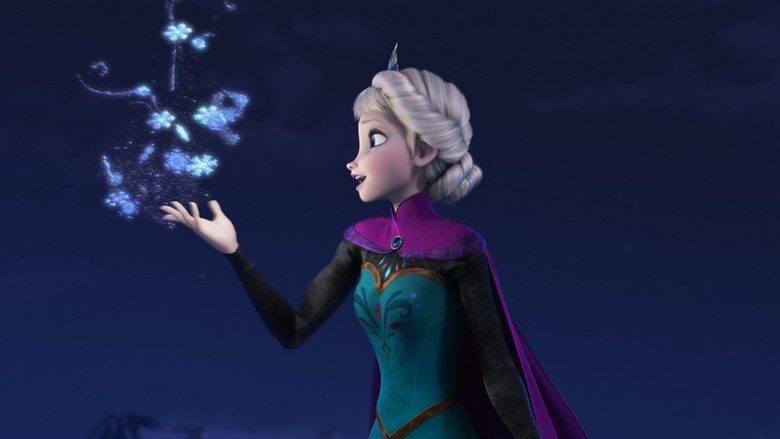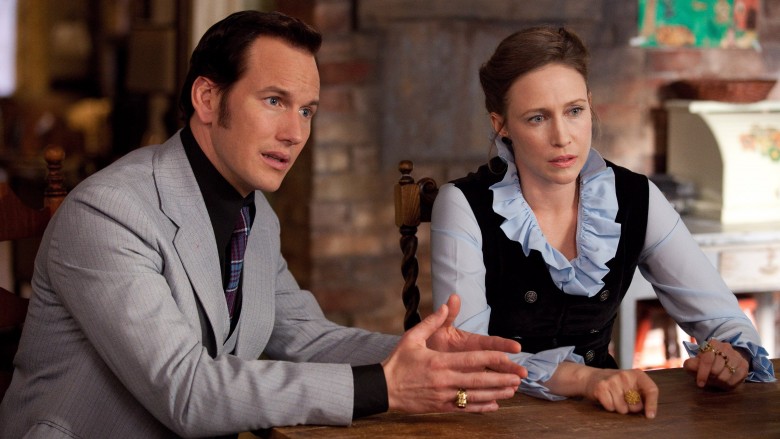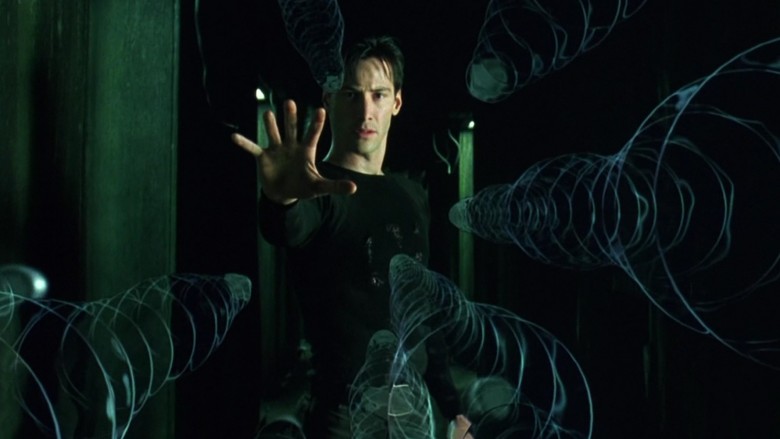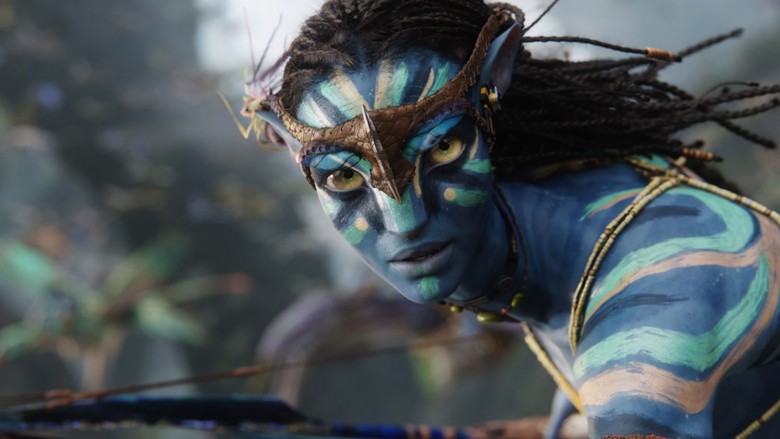The Real Stories Behind The Most Expensive Lawsuits In Film History
The film industry is a cutthroat business, and when feelings get hurt or bank accounts are shortchanged, then directors, actors, and studio executives can find themselves in loads of legal trouble. Throughout Hollywood history, frustrated producers and jilted writers have taken rival filmmakers to court, hoping to win millions of dollars to make up for some cinematic slight...and sometimes, things can get incredibly expensive. From copyright infringement to defamation cases, we're looking at the real stories behind the most expensive lawsuits in film history.
The Cabin the Woods - $10 million
In 2012, writer and producer Joss Whedon wowed critics and horror fans alike with his blood-soaked comedy The Cabin in the Woods, a film about a group of students who visit, well, a cabin in the woods, only to wind up fighting a series of increasingly lethal (and bizarre) threats. It sounds like pretty standard horror fare, but Cabin used its stereotypical plot to upturn genre expectations, poking fun at longstanding horror tropes and providing meta-commentary on the nature of slasher films.
Of course, not everyone was enamored with Whedon's horror flick, especially author Peter Gallagher, whose 2006 book The Little White Trip: A Night in the Pines shared some similarities with the film. For example, the novel features five heroes who check out a cabin called the Brinkley house. There are two female characters named Jules and Dura, and the group does a bit of drinking and flirting before they're attacked by an evil presence. Then, at the end, the whole thing turns out to be part of a reality show.
Now, compare that to Cabin in the Woods, which features five heroes who check out a cabin called the Buckner house. The two female characters are named Julie and Dana, and the group does a bit of drinking and flirting before they're attacked by an evil presence. Only this time, it's revealed the students are part of a secret government ritual. Gallagher sued Whedon, director Drew Goddard, Mutant Enemy Productions, and Lionsgate for $10 million—but despite the similarities, a judge dismissed the case in 2015, saying, "While the two works share a similar premise...that premise is unprotectable. The concept of young people venturing off to such locations and being murdered by some evil force is common in horror films."
Yeah, that's true. Just ask Sam Raimi.
10 Things I Hate about Life - $30 million
10 Things I Hate About You was an immediate success when it hit theaters in 1999, winning over moviegoers and critics while offering early starring roles to Heath Ledger, Joseph Gordon-Levitt, and Julia Stiles. Still, despite the film's popularity, Hollywood never thought to make part two...until about 13 years later. In 2012, original director Gil Junger announced he was working on 10 Things I Hate About Life, a quasi-sequel about two suicidal people who meet and fall in love. Financed by a company called Intandem, the film was supposed to star Evan Rachel Wood, but the production hit quite a few snags along the way.
Filming started in December 2012 and shut down a few months later—and this is where things started getting weird. According to the folks at Intandem, shooting stopped because Evan Rachel Wood was pregnant, but after giving birth in July 2013, she refused to come back to the film. About a year later, the production company filed a $30 million lawsuit against the actress, demanding a trial by jury and claiming Wood was "ultimately refusing without any legal justification to fulfill her contractual obligations and instead opting to walk out of the project."
Of course, that's just one side of the story. Wood quickly fired back at Intandem, issuing a statement to The Hollywood Reporter and claiming she was perfectly willing to make the movie. Instead, she claims 10 Things I Hate About Life had come to a halt because "the producers ran out of money." The actress also said the producers "could not get their act together" and hadn't paid her what she was owed. So what happened next? Well, according to Den of Geek, the case just kind of disappeared. And that's true for the movie, too. The only bit of 10 Things I Hate About Life that actually exists is a trailer...for a movie we'll never get to see.
Missing - $60 million
Starring Jack Lemmon and Sissy Spacek, the 1982 drama Missing is based on the real-life disappearances of reporter Charles Horman and activist Frank Teruggi, two Americans who were kidnapped and murdered during a right-wing coup in Chile. Directed by Costa-Gavras, the film implied the American government supported the rebels who ousted the Marxist president, Salvador Allende Gossens, and played a part in the arrest and murder of Horman and Teruggi by Chilean security forces.
But while the word "Chile" was never mentioned in the film and names of American officials involved were changed, the movie didn't sit well with the U.S. government. Days before Missing was released, the State Department publicly attacked the film, providing a list of everything supposedly wrong with the movie. And then, about a year after Missing hit theaters, three US officials took things to court. Nathaniel Davis (former US ambassador to Chile), Frederick D. Purdy (former US consul in Santiago), and Captain Ray E. Davis sued Costa-Gavras, Universal, and several other groups attached to the film, demanding $60 million for libel.
According to the plaintiffs, the movie accused of them involvement in the Horman-Teruggi murders, thus subjecting the trio to "public disgrace, scorn, and ridicule." The suit died pretty quickly, as a judge tossed the case out in 1984, but that was hardly the end of the story. In 1999, the U.S. State Department released thousands of documents showing that, yeah, America was totally involved in the coup that deposed President Gossens. And in June 2014, a Chilean court ruled that American intelligence officers were definitely involved in the deaths of both Horman and Teruggi...so maybe Missing wasn't so inaccurate after all.
Straight Outta Compton - $110 million
Every story needs a bad guy, but when you're making a biopic, things can get tricky. You've got to be careful what you say about real-life people, especially if they're still alive. Tick them off, and you might find yourself on the wrong end of a multi-million dollar lawsuit...and that's exactly what happened with Straight Outta Compton.
Directed by F. Gary Gray, the film chronicles the rise of groundbreaking hip-hop group N.W.A.—and if you've seen it, you know the villain of the story is manager Jerry Heller, played by Paul Giamatti, depicted as a sleaze accused of profiting off the band and cheating them out of their hard-earned cash. Naturally, this didn't sit well with the real Heller, and in 2015, he filed a lawsuit against Gray, Universal, Legendary Pictures and everybody involved with the gangsta rap group (including the estate of Eazy-E).
Heller demanded $110 million, claiming Straight Outta Compton was "littered with false statements" that were meant to "ridicule and lower him in the opinion of the community and to deter persons from associating or dealing with him." In June 2016, Judge Michael Fitzgerald allowed the case to move forward. While explaining most of Heller's claims didn't fly—the movie was largely corroborated by the manager's own memoirs—Fitzgerald noted that Straight Outta Compton implied Heller had tried to discourage Ice Cube from hiring a lawyer to review a business contract, and according to the judge, there was no evidence proving that actually happened. The lawsuit didn't get much further, however; Heller passed away just a few months later.
Django Unchained – Hundreds of millions
Everybody knows Quentin Tarantino is the king of homage. The Bride's yellow jumpsuit? It came from Bruce Lee's Game of Death. The famous dance sequence from Pulp Fiction? He borrowed that from 8 ½. Even the title of Inglourious Basterds was lovingly ripped from 1978's The Inglorious Bastards. But according to one screenwriting duo, Tarantino took things a little too far with Django Unchained, going from remixing to straight-up theft.
In December 2015, Oscar Colvin Jr. and his son Torrance J. Colvin filed a lawsuit against Tarantino, The Weinstein Company, and Columbia Pictures, claiming the Hollywood bigwigs had ripped the plot of Django Unchained from a screenplay they'd written called Freedom. According to the Colvins, their story followed a freed slave named Jackson Freeman who tries to "purchase his family's freedom from a malevolent plantation owner." Freeman even joins forces with a white guy during his journey into the "hellish realms of the South," similar to Django's relationship with King Schultz.
So how did Tarantino supposedly get their script? Well, the Colvins claimed they'd shopped their screenplay, registering it with the Writers Guild of America and showing to agencies like CAA and William Morris. They even claimed Tarantino's name was brought up as a possible director. So somewhere along the way, the duo believed the director must've seen their script, and now the Colvins were suing for "hundreds of millions of dollars." But when it came time to the bloody showdown, Tarantino was the last man standing, as the suit was dismissed in January 2017.
Frozen - $250 million
When Disney released Frozen in 2013, they probably weren't shocked to see the film become a major hit; they may not even have been terribly surprised when it raked in a billion dollars. But they were probably a bit confused when they got a letter accusing them of theft. "Your movie is plagiarism of my book," the letter read, and to drive the point home, the company was hit with a $250 million lawsuit. So who accused the House of Mouse of copyright infringement? Was it a jilted fantasy writer, perhaps?
As it turns out, the plaintiff was a New Jersey author named Isabella Tanikumi, who claimed Frozen was based on her memoirs.
No, Tanikumi's book wasn't about her life as a princess, and it didn't have anything to do with ice castles or snow monsters. Instead, Yearnings of the Heart focused on Tanikumi's relationship with her sister and her life growing up in Peru. Nevertheless, the New Jersey writer managed to find 18 similarities between her book and the Disney film. For example, both works are about sisters. And then of course, Ana is injured by Elsa's magic, just as Tanikumi was...scarred in a nasty kitchen accident.
Judge William Martini wasn't really convinced with Tanikumi's arguments, so when Disney filed a motion to dismiss the lawsuit, Martini granted their request, pointing out the stories were "entirely different." As he ran down Tanikumi's 18-point checklist, the judge explained that "None of these [similarities] involve magic powers or icy Nordic kingdoms." The connections between Yearnings of the Heart and Frozen were just too "generic" and "not protected by copyright laws." In other words, Tanikumi was forced to let her lawsuit go.
This Is Spinal Tap - $400 million
A cult hit that eventually wound up in the National Film Registry, This Is Spın̈al Tap is generally regarded as the best mockumentary ever made. It's got brilliant characters, amazing improv, and some incredibly catchy tunes. But while the film has garnered praise from critics and rock stars alike, the Rob Reiner comedy has recently found itself mired in some serious controversy, all thanks to the Spın̈al Tap soundtrack.
Things got started in 2016, when actor Harry Shearer (Derek Smalls) decided to sue the mass media conglomerate Vivendi and its subsidiary StudioCanal for a whopping $125 million. What prompted the lawsuit? Well, Spın̈al Tap was released in 1984, and Vivendi snapped up the rights in 1989. This sounds like a savvy move by Vivendi, but according to Shearer, the conglomerate claimed the film wasn't making any money.
This didn't sit right with the actor, who believes Spın̈al Tap must've earned a nice chunk of change over the years. According to the lawsuit, Vivendi has claimed that merchandise and soundtrack sales combined have only netted around $179. As you might expect, Shearer isn't buying this, and his suit accused Vivendi of fraud, breach of contract, and accounting misappropriation. In February 2017, Shearer was backed up by the rest of the band. With Christopher Guest (Nigel Tufnel), Michael McKean (David St Hubbins), and director Rob Reiner on board, the damages sought skyrocketed up to $400 million.
Just a few weeks later, Vivendi moved to have the lawsuit dismissed, claiming the actors never properly reviewed StudioCanal's records or requested an audit. The company also maintains that Spın̈al Tap hasn't made enough money to justify the $400 million demand. But according to Reiner, Vivendi just isn't playing fair, and he's "hoping this lawsuit goes to 11."
The Conjuring - $900 million
A lot of famous horror movies are supposedly based on true stories. Take The Conjuring franchise, for example. The three fright flicks (The Conjuring, The Conjuring 2, and Annabelle) are all supposedly based on the lives of Ed and Lorraine Warren, a married couple famous for investigating the paranormal. In order to put their stories on the big screen, Warner Bros. asked Lorraine for the okay, but according to one irate author, the studio went to the wrong person for permission.
In 1980, Gerald Brittle published The Demonologist, a book chronicling the escapades of the exorcist couple. According to Brittle, when he was working on the book, the Warrens approved a "no competing" work provision, which means any stories based on the same subject as The Demonologist had to go through Brittle first...which explains why he's suing Warner Bros., New Line Production, and director James Wan for a terrifying $900 million.
As a response, the film company told Brittle they didn't need his permission because The Conjuring franchise was based on historical events, and you can't copyright facts. But this is where the case takes a crazy turn. According to Brittle, The Conjuring movies aren't based on historical events because the Warrens made everything up. For example, the first film revolves around a Rhode Island witch haunting the unfortunate Perron family, and as Brittle's lawsuit explains, "There are no historical facts of a witch at the Perron farmhouse, a witch hanging herself, possession, Satanic worship, or child sacrifice."
So if ghosts and witches don't exist, then Warner Bros. didn't base their movies on real-life events. Instead, it all comes back to Brittle's book, prompting the author to call The Conjuring movies "at best unauthorized derivative works." It all gets a lot worse when you realize Brittle can prove that James Wan read his book two years before The Conjuring hit theaters. In 2011, the director tweeted that The Demonologist was "the scariest book" he'd ever read, which kind of makes it look like Warner Bros. was aware of Brittle's work and just didn't ask him for permission.
In other words, unless the company can prove that spirits exist, it looks like they might have to shell out some serious cash.
The Matrix and Terminator franchises – Over $1 billion
Like many great movies (e.g. Star Wars, Tarantino's filmography), The Matrix is a brilliant mash-up of previously established works, from the New Testament to Alice in Wonderland. But according to author Sophie Stewart, Matrix masterminds the Wachowskis didn't just borrow other people's ideas—instead, she says they stole the entire plot from a story she wrote in the early 1980s.
Called "The Third Eye," Stewart's story was basically a sci-fi version of the book of Revelations, featuring a prophesied protagonist called the One who dressed in all black. In 1986, five years after copyrighting it, Stewart claims she submitted "The Third Eye" to a duo looking for cool stories to turn into comic books. She also supposedly mailed them everything from illustrations to character analyses to properly convey her ideas. And as you've probably guessed by now, Stewart says the people asking for story ideas were none other than the Wachowskis.
So after The Matrix premiered in 1999, Stewart started claiming the film was ripped straight from her story. Infuriated, the author sued the Wachowskis, producer Joel Silver, and Warner Bros. for over $1 billion. She also decided to go after 20th Century Fox, claiming the second studio used her work as the basis for The Terminator franchise. However, the case was tossed out in June 2005 because—even though she had all that money on the line—Stewart neglected to show up for a preliminary hearing.
Plus, as the judge pointed out, Stewart never provided any evidence to support her claims, which really isn't the best way to go about winning a billion-dollar lawsuit.
Avatar - $2.5 billion
Here's the sad truth. When you make the highest-grossing movie of all time, someone's always going to try and weasel in on the action—as director James Cameron found out the hard way. After Avatar grossed over $2.7 billion in 2009, quite a few people wanted a piece of the Pandora pie. For example, in 2012, a writer named Elijah Schkeiban took Cameron to court, saying the director copied Avatar off his novel/screenplay franchise Bats and Butterflies. The suit was kicked out of court, and just a year later, Cameron emerged victorious again after a guy named Gerald Morawski accused Cameron of stealing his pitch for an environmental story titled Guardians of Eden.
That same year, the director and his company, Lightstorm Entertainment, went head-to-head with Eric Ryder, an author who claimed Cameron had stolen Avatar from a short story called "K.R.Z. 2068." Once again, Lady Justice ruled in the director's favor, but a few months later in 2014, Cameron was dealing with a Canadian restaurateur, Emil Malak, who wanted the movie mogul to fork over $100 million for allegedly basing his space story on Malak's screenplay Terra Incognita.
In September 2014, artist Roger Dean—who's designed covers for bands like Yes and Asia—took Cameron to court for $50 million, saying the filmmaker copied Avatar's look from his artwork. Once again, a judge didn't see any similarities and ruled in Cameron's favor. But the big one came just a few months before the Dean incident ended, when Cameron defeated a writer named Bryant Moore. The sci-fi author hit the director with a $2.5 billion lawsuit (nearly every cent Avatar made in theaters) for supposedly ripping off his screenplays. Care to guess who won this particular legal battle? If you picked Moore, well, you picked wrong.

